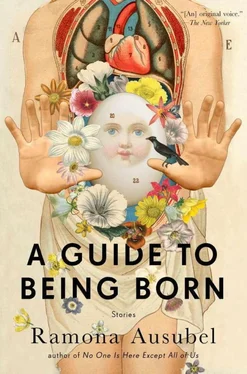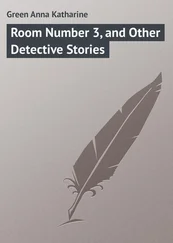“We should really be getting started,” the professors began to say to one another. “Isn’t someone in charge here?” Except for a few wiry-haired ex-hippies, the professors tended to be watch-watching on-timers. Lateness was a sign of laziness and unwillingness to attend to The Way Things Must Go.
Faustus took his cookies to a corner seat, alone and with a bad view. “I am at school,” he whispered to himself. “This is fine.” He thought about the last day he taught a class and the doctor’s appointment following it. After, Petra and Faustus had parked their newish car on the street and walked into the house, whereupon Petra took a slow and silent lap, touching each item on each shelf. The Native American pots from trips to the Southwest. The pictures of their nieces and nephews. A hammer left on the mantel after hanging a picture. The sun was still strong and it broke into the house in tubes of light so that his wife, her fingers moving slowly over item after item, was bright white.
A woman sat down next to Faustus and introduced herself as Professor Claire Baker, Bio. They had little in common once they established that he was childless and hadn’t even passed his high school science classes. And in regard to reading, Professor Baker admitted to enjoying a People magazine on the beach but preferred no words to words. “Written words, that is. Talking I like, I can talk plenty of words!” She was visibly amused by her bad sentence, as if it was a shining testament to her identity as a Science Person. “See that?” she joked. Faustus saw that. “You? What’s your story?” she asked.
“My wife is dead and I’m taking the semester off,” he said, too tired to recall the manners he had promised himself to employ. “But I think the center from Duke has amazing potential.”
“Oh, you poor thing,” she began, but he interrupted her.
“What I would like to do?” he said. “Is for us both to pretend that I am invisible.”
At this point, an ambitious undergraduate—feeling the anxiety of this late start, the anxiety of the absence of the great speaker all the way from Oxford whom he knew all the professors had been waiting to meet, professors in whose minds he could picture perfect questions formulated over the last weeks—went to the podium and tapped the microphone. “Hello, everybody,” he said. He clapped his hands together dramatically and projected his voice much more than necessary, so that every time he said the letter P , a great explosion of sound went out through the seats.
“Please, please, settle down. Welcome to this evening’s program. I think we ought to get started, don’t you?” He swished his hand through his thick brown hair. “Um… Learning is important, I think we can all agree. So, I think that this university is a great institution. Actually all universities, but this one in particular.” The undergraduate was already running out of things to say and he hadn’t said anything yet. He had hoped that his presence at the podium would root out the Laureate, who might stand up graciously and wait to be introduced. No such graciousness occurred, so the undergraduate continued. “Uh, when I arrived here I didn’t care about the Spanish Civil War. Maybe other people always cared, but I didn’t. But now, because of Professor Paul Pretoria’s class this semester, I think it’s awesome . Oh!” he said, getting an idea, “please put your hands together for Professor Paul Pretoria.”
Professor Baker and Faustus both clapped, but they did not look at each other.
In order to come to the stage, Professor Pretoria had to squeeze past the knees of a half row of people. “What an unexpected honor,” he said when he finally arrived. “Thank you, Carlo. I haven’t prepared anything, but as long as I have you here I might like to say a few words about…” Whatever he actually said, what nearly all the other professors heard was “the capture of so and so which I will relate to the events of blah blah and to the unusual situation we find ourselves in concerning blank.”
The speech was certainly more than a few words. The many wrists were busy with watch viewings. “Have you seen the Nobel Laureate?” people asked. “Maybe he’s late? Maybe he’s stuck in traffic? Maybe he’s lost or dead or asleep? But what could be more important than this?” they asked. “His peers have gathered out of respect and admiration, and there is no better honor than that. Certainly, no personal problem could ever matter more.”
After points and counterpoints, evidence and notes on the evidence, Professor Pretoria, nervous and sweating with the excitement of his own argument, suddenly looked up and realized that no one was listening. The entire university faculty, gathered here, was bored by what he had imagined might be his own Nobel Prize–winning theory. He said quietly and with a heave of despair directed at a sleeping man in the second row, “This brings me to the next speaker this evening: the amazing, exceptional, genius Professor Zelk.” His voice was burned sugar.
Bill Zelk woke up to the sound of his own name ringing through the speakers. No notes of sarcasm sounded to him. What a wonderful way to wake up! He squirmed and adjusted his wire-rimmed glasses eight times on the way to the stage, making some who did not know him think he perhaps had some sort of disorder. The psychologists were certain. “I am involved in the study of mole rats,” he said. “We are looking at the act of fecal perfuming.” He looked out at the crowd. “There is an awful lot to say on the subject,” and he began to say it.
• • •
FOR THE FIRST FULL HOUR, the professors, Faustus among them, sat up straight in the auditorium chairs, some with legs crossed at the knee, some at the ankle. They had listened vaguely to each introduction and clapped as the next bespectacled or mustachioed person took the stage. Occasionally some got up and had a bit of refreshment. The respectful professors remained quiet even while chewing their cheese.
By hour two they began to fidget. They continued to scan the room for unfamiliar faces—prize-winning faces, the face of the smartest breed. They pointed through the spaces between heads, hopeful that they had found the guest. Faustus had no intention of trying to pick the Laureate out, worried he might ask someone he should have recognized. Perhaps someone with whom he had had a nice conversation at last year’s Christmas Party about Yeats’s dog.
No one wanted to be the first to give up. They hoped that after such turmoil must come great treasure. Whatever sense it made or didn’t, the longer they stayed the more they felt they must continue to do so. They did take other liberties. Most of the French Department curled up on the floor under their seats and napped. They looked like a series of tortoises, their black sweaters hiding the pink of their skin. Others went back to earlier discussions with one another, always with one eye on the podium in case one of two things happened: they themselves were called up to speak, or the headliner finally arrived.
Words like “venerable” and “inimitable” and “indefatigable” were said so many times they began to sound made up. After an analysis of subjectivity and objectivity in Poe and Dickinson, Professor Sydney Mott looked out at the mess of a room and said, “I’ve been divorced recently, as some of you know. She took the cat and I took the fish.” He wondered out loud whether his teenage daughter was sleeping with her boyfriend and whether he ought to try to stop her if she was. “He isn’t even that cute, the boyfriend,” he explained. “He has a mustache. And my daughter is such a beauty, Botticelli-esque.” The professors itched at this microphoned admission. Things like this occurred in creative writing departments, maybe in art, certainly drama, but this was none of those. They did not know what to do.
Читать дальше












